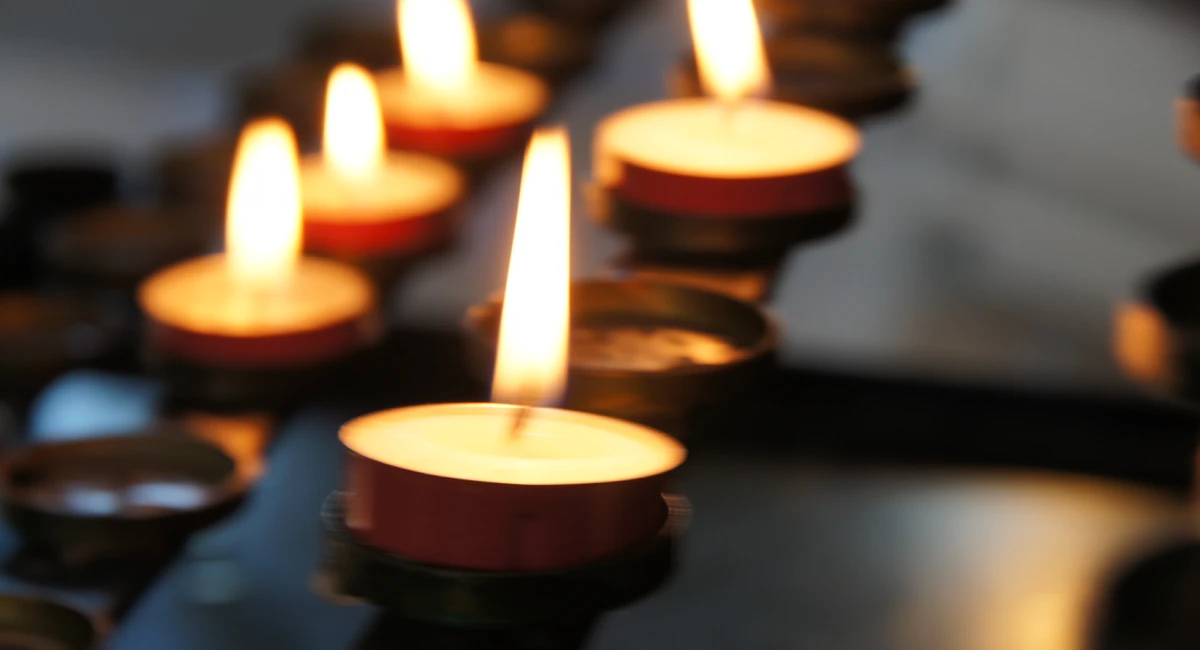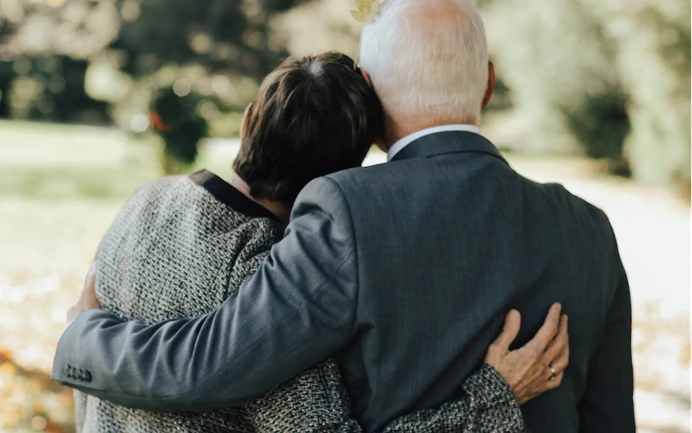
At-Need Funeral Guide: How To Plan An Unexpected Funeral
By: Tom Harries
May 09, 2022 | End-of-life Logistics
5 min readFuneral planning can be an emotional and stressful process, especially when no advanced plans have been made. When someone passes unexpectedly, family members are left to deal with their grief while trying to cope with the task of making funeral arrangements.
Often the unexpected nature of the death can make it hard to think about other pressing issues, especially finances. However, it is possible to make arrangements that properly celebrate your loved one’s life while also minimizing the stress and financial burden for family and friends.
This article explains what an at-need funeral is and outlines some of the key steps and decisions involved in sudden death funeral planning.
What Is An At-Need Funeral?
The term ‘at-need funeral’ refers to the disposition and funeral services that are organized after the death of an individual and that are required immediately. The key element is that there have been no plans put in place in advance. This normally occurs because the death is unexpected or follows a short illness, but that is not always the case.

Funeral homes offer ‘pre-need’ funeral services, which help people put funeral plans in place sometimes many years in advance. They also offer at-need funeral arrangements to organize a funeral in a matter of days or weeks.
How Can I Plan A Low-Cost Sudden Funeral?
Funerals are expensive — the average funeral in the US costs more than $7,000. Planning a funeral or memorial service to budget can be difficult, and even more so when it needs to be done suddenly. Grief and stress make it more difficult to think clearly about what to do and to keep costs under control.
There are a number of things that can be done to help keep a funeral low-cost. The first step is to work out how much money you have available for the process. This will help you keep perspective on the various costs of individual services. It will also help you to more easily make some of the big decisions about what type of disposition you will choose and how you will memorialize your loved one.
At this stage, you should also check whether you can access any financial support. There may be a local charity that supports families in your situation. Some families reach out for help from their broader community via crowd-funding platforms like GoFundMe. Cemeteries also sometimes offer discounts for military veterans’ burials.
One of the decisions that will make the biggest impact on the cost of a funeral is which disposition method you choose, and whether you have a funeral service or not. Traditional burial and cremation services can be very expensive. There are a number of ways to reduce the costs involved in these traditional processes, such as choosing a lower cost casket and opting out of embalming. However, there are also alternative processes which people do not always know about and which can save a lot of money.
Get a quote in seconds.
Alternatives for low-cost funerals include direct cremation and immediate burial, which are simpler versions of the traditional processes and usually involve disposition within the first few days of a person passing, and without a viewing or service beforehand. You could also consider natural burial, which does not involve expensive caskets, vaults and grave markers. Another option that might be lower cost is soil transformation, a sustainable alternative to cremation, which involves the gentle transformation of a body into nutrient-rich soil.
A final option, which could both save money and reduce stress, is to hold a memorial service or celebration of life at a later date. This would give you more time to make arrangements and to budget appropriately. Memorial or celebration of life services often do not require a funeral home at all, which also saves money.
Who To Involve In At-Need Funeral Arrangements
There are several people you could involve in your at-need funeral planning. These include family members and close friends whose support might be invaluable. Some families also look to leaders in their local faith community for emotional support.

When planning for an immediate funeral, it’s also important to find a good funeral director. A funeral director will be able to guide you through the steps you need to take and help you to make important decisions. Make sure to ask your funeral planner about the different options available, including those outlined in this article which might help you save money.
Service Types For An At-Need Funeral
You will need to decide what type of service to have and at what stage to hold one. One option is to hold a memorial service at a later date, when planning may be easier. Alternatively you can choose the more traditional option of holding a service at the time of burial, cremation or other disposition.
You will also need to choose an appropriate location for the service, which will be influenced by your culture, religion and personal preference. Services can be held in religious buildings, at the graveside, in funeral homes or at a unique location.
Steps To Planning A Sudden Funeral

The following steps can help to guide you through some key decisions for imminent funeral planning. They are not the only way to plan a sudden funeral, and you should remember that there is no right or wrong way to celebrate your loved one’s life.
- Report the passing — if a person passes in a hospital, this will be taken care of. If a person passes at home or in a nursing home, the death should be reported to their hospice if relevant, or by calling the authorities on 911 or the non-emergency line
- Speak with a funeral home — you should speak to a local funeral home as soon as possible to make sure all options are available to you, and to have the support of a professional to guide you through the process
- Arrange transportation — you will need to arrange for the body to be transported to the funeral home, which is something the funeral home will be able to help you organize
- Discuss options with your funeral director— a funeral director will be able to help you make important decisions and start organizing a funeral or memorial
- Decide on the service — as part of these discussions, you will need to decide whether or not you would like a service arranged by the funeral home
- Cemetery arrangements — if you choose burial, you will need to buy a burial plot. Your funeral director can direct you to a cemetery for this
- Memorialization — you will need to decide how to memorialize your loved one, which your funeral director can also help with
- Estate matters — you will need to locate your loved one’s will and work out who is to be in charge of administration
Explore
At Earth, we provide soil transformation services. Soil transformation, also known as natural organic reduction or human composting, involves the gentle transformation of a body into nutrient-rich soil. Families choose how much soil they’d like returned — to scatter or plant — with the remainder sent to local conservation sites for land restoration purposes.
If this is a process that appeals to you for a sudden funeral, read about our services and get a quote here.
Get a quote in seconds.







